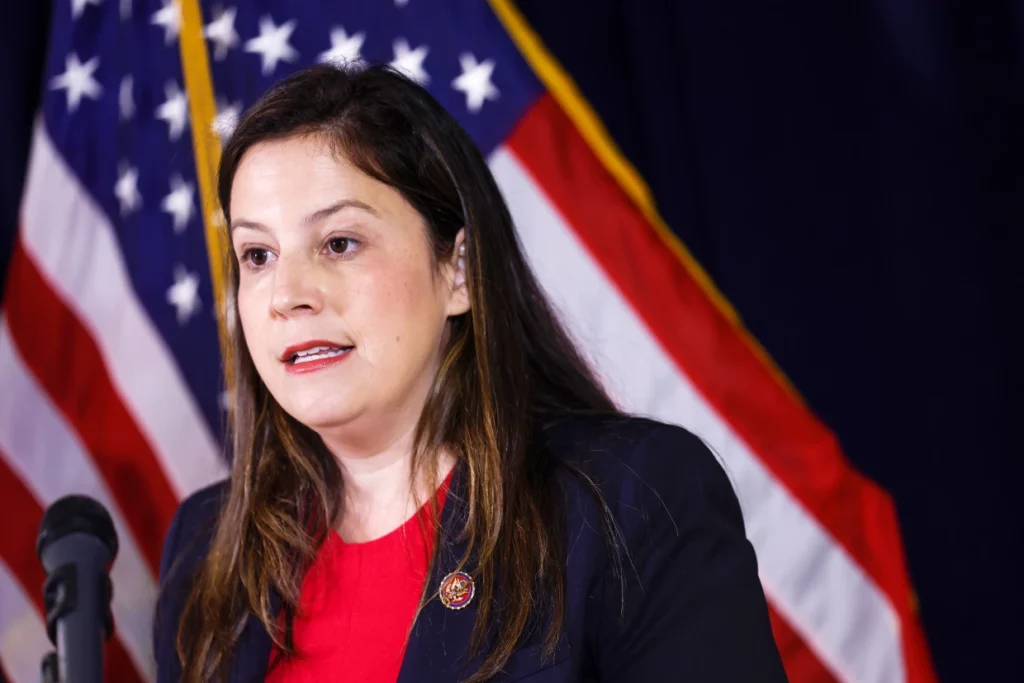Citing a constitutional insurrection provision, Maine’s chief election commissioner said that Donald Trump is ineligible to run for president in the state the next year.
Shenna Bellows, the secretary of state, stated that Mr. Trump was ineligible due to his conduct preceding the 2021 US Capitol riot.
Maine and Colorado are the two states that have prohibited Mr. Trump from running for office.
The rulings put more pressure on the US Supreme Court to provide a ruling.
Although Maine is more politically contested and would be more consequential for Republican front-runner Mr. Trump to lose, Colorado consistently votes Democratic.
The Trump campaign has already declared that it will file an appeal against the Maine decision in state courts; however, the decision will not be implemented until the legal proceedings are completed.
The most populous state in the union, California, declared shortly after Maine’s ruling that Mr. Trump would continue to be listed on the Republican primary ballot there.
Recently, attempts to prevent Mr. Trump from entering the race for president have also been rejected by courts in other states, such as Minnesota and Michigan.
The final verdict on whether Mr. Trump can run for president or if he is disqualified due to a US Constitutional amendment from the Civil War is probably going to come from the Supreme Court.
In her 34-page decision, Mrs. Bellows argues that Mr. Trump should not be allowed to compete in Maine’s Republican primary because the 14th Amendment forbids anybody who has “engaged in insurrection or rebellion” from being eligible to hold federal office.
The Democratic leader, Mrs. Bellows, orders that Mr. Trump “used a false narrative of election fraud to inflame his supporters and direct them to the Capitol over the course of several months and culminating on January 6, 2021.”
She stated that his “occasional requests that rioters be peaceful and support law enforcement do not immunize his actions” .
Following her decision, Mrs. Bellows expressed her hope that the “Supreme Court will settle this matter nationwide” and stated that it was her duty to defend election laws in her state in an interview with BBC News.
“I’m conscious of the fact that, according to section three of the 14th Amendment, no secretary of state has ever denied a presidential candidate access to the vote. But I also realize that no presidential candidate has ever participated in insurrectionary behavior before.”
She insisted that her choice was “thorough and based on the rule of law,” rejecting any political motivation.
Regarding his attempts to reverse his defeat to Democrat Joe Biden in the 2020 election, Mr. Trump is scheduled to go on trial in federal court as well as in the state of Georgia. In neither occasion has he been accused of encouraging an insurrection.
Having earlier demanded that Mrs. Bellows step out from the process, his campaign promptly criticized her choice.
Steven Cheung, a campaign spokesman, referred to Mrs. Bellows as “a hyper-partisan Democrat who supports Biden” and asserted that she was meddling in the election.
“Quickly file a legal objection in state court to prevent this atrocious decision in Maine from taking effect,” he continued, announcing the campaign.
Maine’s choice was criticized by Mr. Trump’s Republican opponents in the presidential race as well.
The governor of Florida, Ron DeSantis, stated that the decision made in Maine “opens up Pandora’s Box” and hinted that Republican secretaries of state would attempt to remove President Joe Biden from office due to his stance on immigration at the southern border.
“I don’t believe the US Supreme Court will ultimately uphold this legally. However, he told Fox News, “I do believe that this will continue throughout election year, with various aspects of these trials taking center stage.”
“This is what an actual threat to democracy looks like,” stated Vivek Ramaswamy.
He reiterated his vow to “withdraw from any state’s ballot that ultimately removes Trump from its ballot” in a post on X, the former Twitter platform.
Many states have challenged Mr. Trump’s 2024 presidential campaign on the grounds that he is unable to enter office due to the 14th Amendment.
After the American Civil War, the 14th Amendment was ratified to prevent Southern states from re-joining the Union and allow Confederate secessionists to regain power.
Legal analysts predict that the Colorado verdict will not hold up well when it reaches the conservative-leaning US Supreme Court. Colorado’s ban was the first time the Constitution was used to exclude a presidential contender.
A few former Maine congressmen filed a lawsuit to exclude Donald Trump from the upcoming Republican primary in Maine, which is a step in the process by which Republicans select their presidential nominee. They claimed that the former president had broken his oath of office.
Joe Moreno, a former federal prosecutor, told BBC News that he thought there was “no way this holds up”.
Moreno criticized Mrs. Bellows’ decision, saying, “It’s breathtakingly arrogant for her to unilaterally decide that someone has committed insurrection.”
“This will create a political furore… that’s the unfortunate outcome here,” added the politician.
All of this culminates in a Supreme Court confrontation that Mr. Moreno stated ought to happen “rapidly” in order to prevent further states from independently evaluating Trump’s eligibility.





